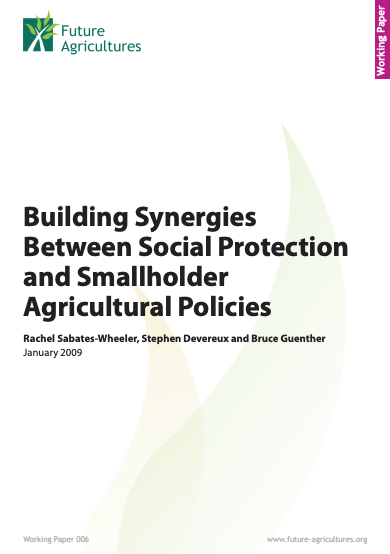Building Synergies Between Social Protection and Smallholder Agricultural Policies

The paper explores how social protection and agricultural policies interact, creating either synergies or conflicts between them. To the extent that social protection measures help poor rural people expand their assets, use them more efficiently and adopt higher return activities, there should be strong synergies with agricultural development. Reverse synergies can also arise, if agricultural policies help farmers improve their livelihoods and reduce their vulnerability. But conflicts can occur if policy objectives are inconsistent with each other, and these are also examined in this paper. We draw on numerous examples from the across the globe, but with specific emphasis from the African continent to highlight issues including, liquidity constraints, scale and threshold effects, timing, seasonality and policy complementarities. In conclusion we consider lessons for how the agricultural policies and social protection instruments can be designed and implemented to exploit welfare and growth synergies.